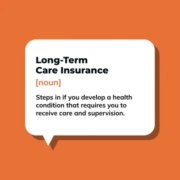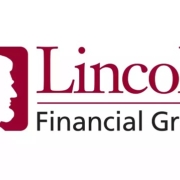Year End Tax and Financial Planning for 2018 – 12/01/18
Money Matters – Skloff Financial Group Question of the Month – December 1, 2018
By Aaron Skloff, AIF, CFA, MBA
Q: With the end of the year quickly approaching, what are some important tax and financial planning measures we can take to reduce our taxes and improve our financial position?
The Problem – Year-End Financial Oversights and Mistakes
With so many gifts to purchase and holiday parties to attend, it is easy to forget important year-end tax and financial planning measures that can save you taxes or provide financial benefits for years to come.
The Solution – Take Action in the Before the End of the Year
Many tax and financial planning deadlines are based on a calendar cycle – complete them after December 31st and lose the benefit for that year. Outlined below are some of the most common oversights and mistakes to avoid before the year ends.
1. Not Contributing to Your 401(k) or 403(b) and/or 457(b)
Not only do you build your retirement nest egg, but you also gain a tax break by contributing to your employer’s retirement plan. Better yet, many employers will match your contributions. Unfortunately, there is a cap on contributions each year. For 2018, the 401(k) limit is $18,000 for those under the age of 50 and $24,000 for those ages 50 and over. Additional contributions can be made with the “lifetime catch-up” with a 403(b) and a “double-limit catch-up” with a 457(b). Contributing to your retirement plan reduces your adjusted gross income (AGI), which can reduce your income tax rate and potentially avoid investment surtaxes. Some plans offer after tax contributions in addition to pre-tax or Roth contributions. Once you maximize your contribution you cannot make additional contributions to make up for under-contributing in previous years.
2. Not Timing Capital Gains and Losses
Capital gains and losses are classified as either short-term (less than one year) or long-term (more than one year). Short and long-term losses must be used first to offset gains of the same type. If your losses of one type exceed your gains of the same type, then you can apply the excess to the other type. Net losses of up to $3,000 a year reduce ordinary income. Amounts in excess of $3,000 can be used in future years. Selling investments, like stocks, bonds, or mutual funds you have held for more than one year generates a 0%, 15% or 20% capital gains tax rate (based on your income). Realizing a gain on investments held for less than one year could generate a 37% tax rate (based on your income). On top of the capital gains tax is a 3.8% investment surtax (based on your income). Review your portfolio to maximize your gains and losses and remember losses can be carried forward to future years. Do not get tripped up with the wash sale rule – selling a security at a loss and buying the same or “substantially identical” security within 30 calendar days before or after the sale. Wash sale losses are typically disallowed for current income tax purposes.
3. Paying the Alternative Minimum Tax
Also known as AMT, the alternative minimum tax impacts fewer taxpayers due to the Tax Cuts and Jobs Act – but can still be painful. Instead of exercising your incentive stock options early exercise them when they are closer to their expiration date. Verify your municipal bonds and municipal bond funds holdings are exempt from AMT, as many are not exempt. Each of these measures could eliminate or mitigate your AMT exposure.
4. Forgetting to Take Your Required Minimum Distribution
Also known as RMD, required minimum distributions are necessary on traditional IRA accounts once you turn 70 ½ years old (with certain exceptions) or if you inherit an IRA (with exceptions for spouses). If you have a 401(k), 403(b) or 457(b) from a former employer and you are at least 70 ½ years old, RMDs apply. You may be subject to a 50% tax penalty if you forget to take your RMD.
5. Not Contributing to Your 529
For 2018, the maximum contribution per person, per beneficiary, to a 529 higher education savings plan is $15,000. There is a special five-year pull-forward rule, allowing you to contribute $75,000 in a single year, per owner, per beneficiary. Funding your 529 also provides valuable estate planning benefits, as contributions and growth on those contributions are exempt from income and estate taxes.
6. Not Paying Your Medical Expenses and Long Term Care Insurance Premiums from Your Health Savings Account
Also, known as HSA, a Health Savings Account provides you the ability to pay your medical expenses and long term care insurance premiums on a tax free basis. Although HSA balances can be carried over year to year, some expenses have annual limits.
Action Steps – Reduce Your Taxes and Improve Your Financial Position
Do not leave money on the table, pay more taxes than you need to pay or fail to meet your goals of funding a college education or a comfortable retirement. Avoiding the oversights and mistakes listed above can reap benefits for years to come.
Aaron Skloff, Accredited Investment Fiduciary (AIF), Chartered Financial Analyst (CFA), Master of Business Administration (MBA) is CEO of Skloff Financial Group, a Registered Investment Advisory firm specializing in financial planning, investment management and benefits for small to middle sized companies. He can be contacted at www.skloff.com or 908-464-3060.












